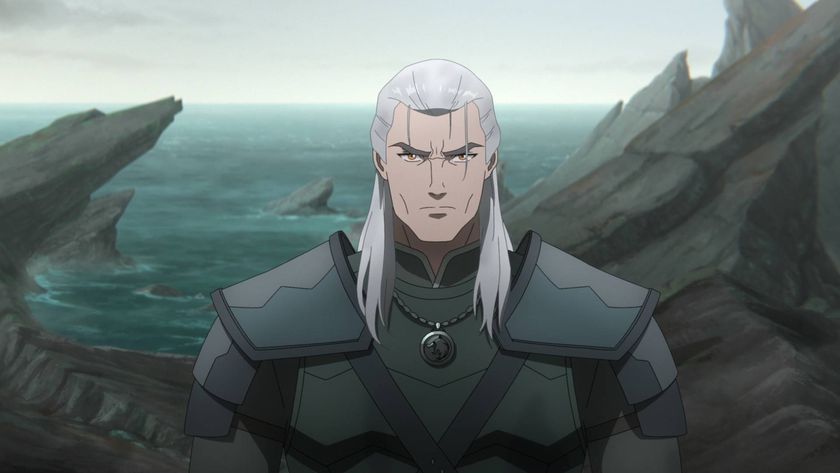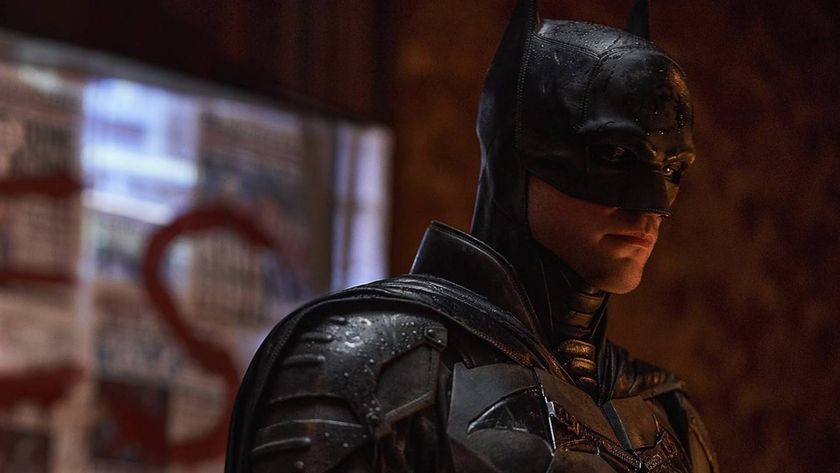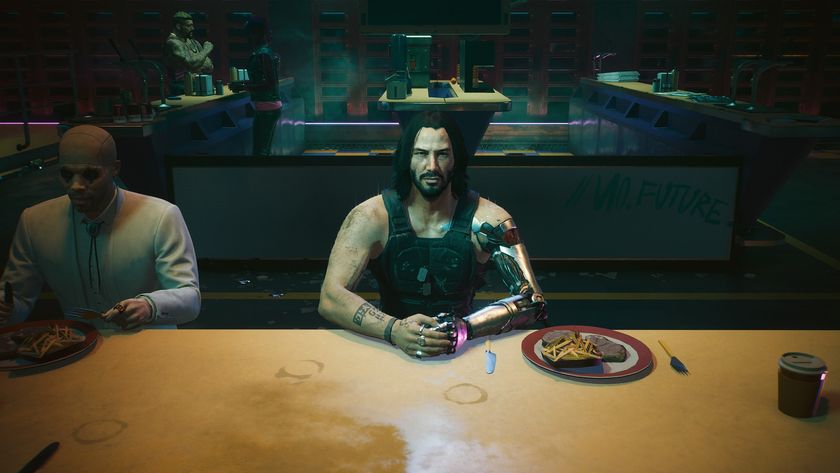7 Hollywood True Stories That Lied
We look at what’s real… and what’s bogus
Hollywood loves to base movies on memoirs, inspiring stories of sports achievements or meaty real-life crimes.
But not everything that hits the screen is the 100% unvarnished truth. Some things are shifted for creative reasons (like collapsing timelines so the story fits into the movie’s running time) and some… are just made up.
We decided to skewer seven true-life tales that are, in places, anything but…
The Film: American Gangster (2007)
The Hollywood Version: “The true juggernaut success story of a cult figure from the streets,” starring Denzel Washington as crime kingpin Frank Lucas, a Harlem based heroin entrepreneur.
Russell Crowe co-stars as detective Richie Roberts, part of the police team who brought Lucas down and “flipped” him, making him an informant who helped take down other dealers and high-level criminals.
Just The Facts: Aside from the fact that the film had to leave out an awful lot of the story to fit the film’s length, it also invented a lot of stuff to make the corrupt cops in the story look worse and the good guys better.
Sign up for the Total Film Newsletter
Bringing all the latest movie news, features, and reviews to your inbox
Take the scene where the cops raid Lucas’ home. The actor-agents are seen shooting the family dog, assaulting the drug dealer’s wife and stealing a pile of money from the house.
Never mind that at Lucas’ trial all of the $585,000.00 taken from his home during the raid was introduced into evidence. If it had been stolen by the agents how could it have wound up in court?
The 1975 raid in real life was led by agent Gregory Korniloff. Through his lawyer he says that the movie’s raid scene is completely false in almost every way.
“It was conducted pursuant to a federal search warrant. There was no wife assaulted, no dog shot, no money stolen.”
Next: A Beautiful Mind [Page-Break]
The Film: A Beautiful Mind ( 2001)
The Hollywood Version: “He Saw The World In A Way No One Could Have Imagined.” And “he” was John Forbes Nash Jr (Russell Crowe- him again), a math prodigy who battled terrible schizophrenia to snag the Nobel Prize.
It’s also the story of his loving wife Alicia, played by Jennifer Connelly.
Just The Facts: Um, well, the love story isn’t quite as lovely as on screen.
John and his wife divorced in 1963, just six years after being married, and never got remarried until 2001 (plus it skips over the fact that John was bi-sexual).
At the end of the film, Nash mentions to a friend that he is taking new medication, and he makes a heartfelt speech dedicated to his wife when he accepts his Nobel Prize.
Made up! Nash stopped taking any medication in 1970, and his continued instability likely led to his not being allowed to make an acceptance speech.
Plus he never saw fake people – his condition made him hear voices.
Next: The Pursuit Of Happyness [Page-Break]
The Film: The Pursuit Of Happyness (2006)
The Hollywood Version: The touching true rags-to-riches tale of Chris Gardner, who struggled through sleeping in bathrooms and menial jobs to crack his way into becoming a millionaire broker.
Real-life father and son Will and Jaden Smith play the pair.
Just The Facts: Even the man behind the story admits that things were changed – though he allowed it.
Take the age of Chris Gardner's son Christopher. He was two in real life, not five. “I understood that. You've got to give these guys some license,” Gardner has said. “My son was two when we were going through this. Did we have dialogue? Yeah. But there's obviously more you can do when the child is a little older. Give them some license."
Other liberties taken? He didn’t sell bone density scanners, but he did hawk medical supplies. And he was never hit by a car.
Oh, and he didn’t get a foot in the door with a broker by solving a Rubik’s Cube.
Next: The Hurricane [Page-Break]
The Film: The Hurricane (1999)
The Hollywood Version: “Based on the inspirational true story of a champion.” And it is inspirational – it’s tough not to cheer when Rubin Carter (Denzel Washington), a boxer accused of murder is freed when his conviction is quashed.
He’s helped by Lesra Martin (Vicellous Reon Shannon) and his three Canadian law mentors who read his book and decide to investigate the case.
They discover racist cops and a conspiracy.
Just The Facts: Controversial one, this, since the movie appears very loosely “based” on the story.
And there are lots of people who say Rubin Carter wasn’t quite as innocent as he made out – he was convicted twice, but the case was thrown out as an unfair trial.
Also, while Lesra Martin and three Canadian law students did indeed help Carter’s case, they never discovered pivotal evidence that secured his freedom. The main police officer was a fictional version of the man involved.
Oh, and while he was in the military, he was court marshalled four times and eventually discharged as "unfit for military service."
Next: Hollywoodland [Page-Break]
The Film: Hollywoodland (2006)
The Hollywood Version : “Based on the true story of Hollywood's most notorious unsolved mystery.” In this case, the death of George Reeves (Ben Affleck), one of the more famous examples of the “Superman curse”.
When the LAPD closes the case, Reeves’ mother Helen Bessolo hires Louis Simo (Adrien Brody) a private eye, to investigate further.
He uncovers a web of lies and untruths stretching deep into Hollywood high society.
Just The Facts: To its credit, the film hues pretty closely to the “truth” of the matter, with a few exceptions.
And given the elusive nature of the story itself, it’s not surprising that director Allen Coulter had to invent some of the details.
Take Simo. "He's a creation inspired by real people but really a completely fictitious character,” Coulter told Dark Horizons.
Bessolo did hire lawyers and private detectives, but no one like the character in the film.
And while the film shows him auditioning to be a wrestler, this never happened.
In reality, Reeves was scheduled to go on tour dressed as Superman and box former light-heavyweight champ Archie Moore in an exhibition match.
Reeves, who had aspired to become a boxer in his youth, was excited about the match. "The Archie Moore fight will be the highlight of my life," Reeves told reporters.
Next: Boys Don't Cry [Page-Break]
The Film: Boys Don’t Cry (1999)
The Hollywood Version: “A true story about finding the courage to be yourself.” And finding Hilary Swank an Oscar for her performance as Brandon Teena, a popular young man in a tiny Nebraska town who hides a secret – he’s a she, Teena Brandon.
The young woman, who, according to conflicting reports, either had gender identity issues or had started to dress as a woman following sexual abuse (the latter theory wasn’t explored in the film) was dating local beauty Lana Tisdel (Chloe Sevigny) when Brandon was beaten, raped and murdered by their friends.
Just The Facts: Director Kimberly Pierce is on record as saying that liberties were taken, though the truth seems to have been stretched more than the real-life people involved would like.
The real Lana Tisdel sued the filmmakers, claiming that they depicted her as a drug-addicted drunk, citing that the movie makes references to her as "lazy, white trash and a skanky snake."
The film also falsely depicts Tisdel falling asleep at the murder scene and "doing nothing about it after it has occurred," as stated in Tisdel's lawsuit.
There were also two other witnesses at the murder scene – both of whom were killed.
Next: Hidalgo [Page-Break]
The Film: Hidalgo (2004)
The Hollywood Version: “The True Story Of A Man Who Went Halfway Around The World To Find Himself.”
Viggo Mortensen is Frank Hopkins, invited by wealthy sheik to enter the Ocean Of Fire, a 3,000-mile survival race across the Arabian desert.
The Sheik puts his claim to be the West’s greatest rider to the test, pitting the American cowboy and his mustang, Hidalgo, against the world's greatest Arabian horses and Bedouin riders - some of whom are determined to prevent a foreigner from finishing the race.
Just The Facts: Well, there was a man called Frank Hopkins. And it appears he did ride horses.
Native American reviewers disparaged the film because they saw it as furthering white stereotypes of Indian culture and behaviour.
Pointing out that Hopkins himself lied continually about his experiences and background, they claim that Hopkins was among many white men to claim Indian ancestry for personal gain.
Oh, and apparently there never was a race like the Ocean of Fire. And there's no documentation to prove that Hopkins ever went to the Arabian desert.
Like This? Then try...
- 7 Recent News Stories That Deserve To Be Movies
- 7 Movies To Save Us From Swine Flu
- 6 Crazy Film Ratings Decision Battles
Sign up for our free weekly newsletter for the latest news, features and reviews delivered straight to your inbox.
James White is a freelance journalist who has been covering film and TV for over two decades. In that time, James has written for a wide variety of publications including Total Film and SFX. He has also worked for BAFTA and on ODEON's in-cinema magazine.
Most Popular









